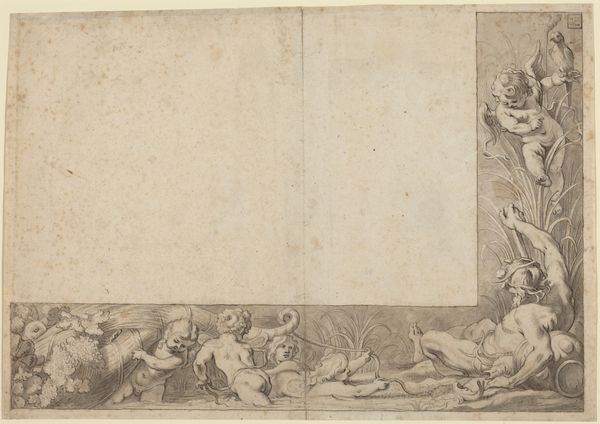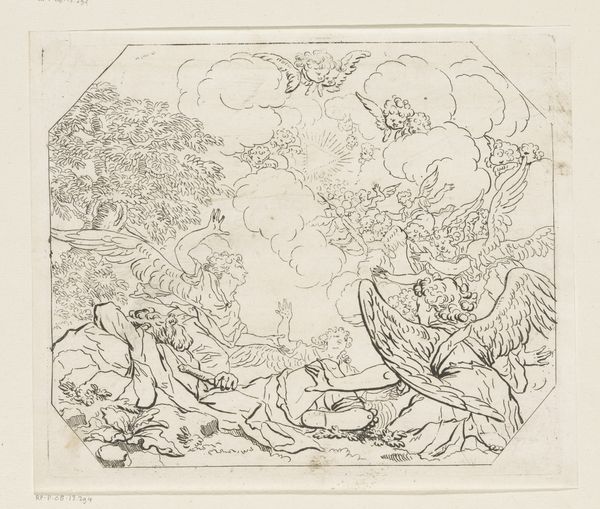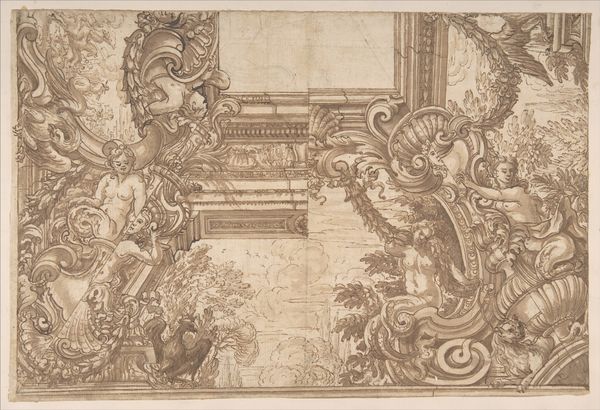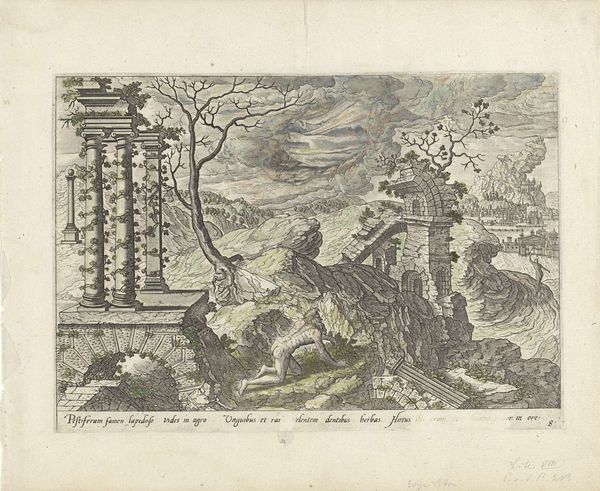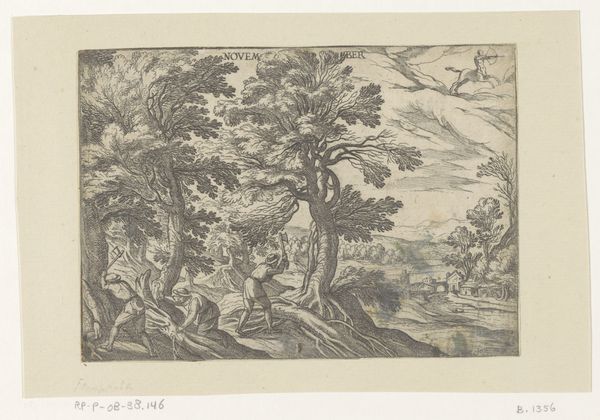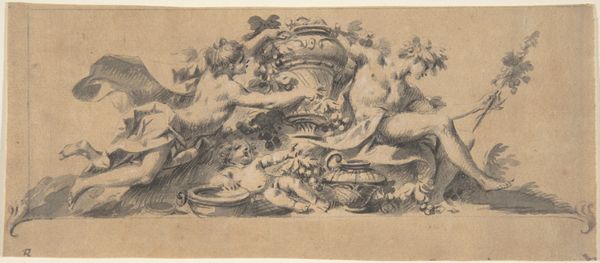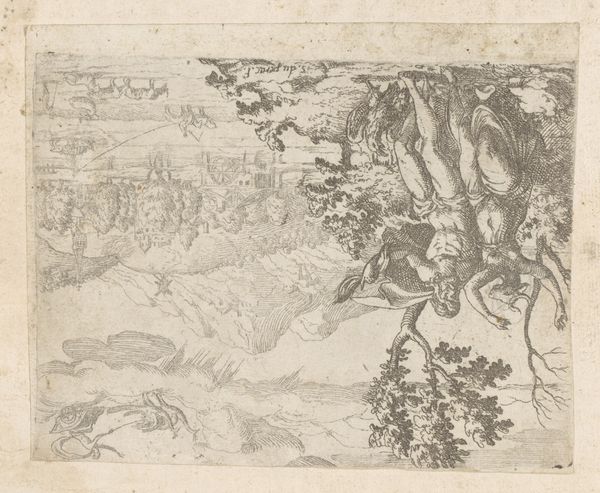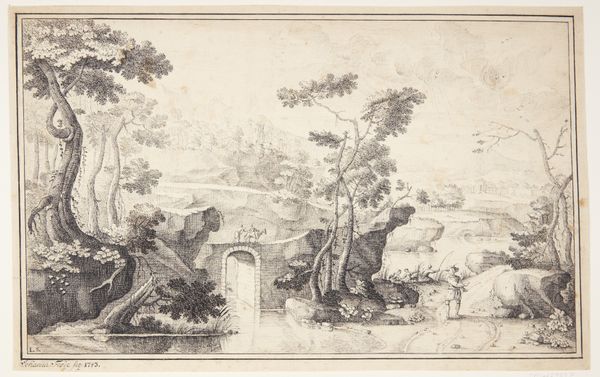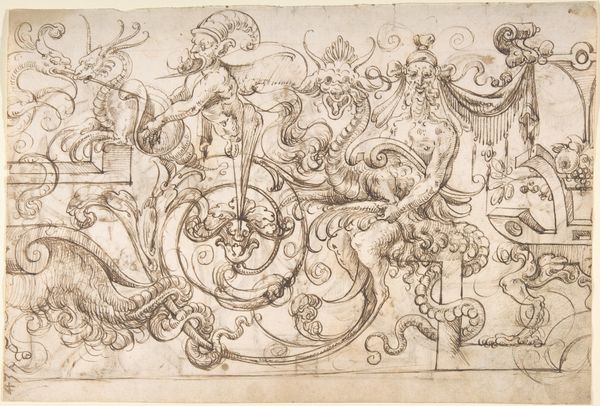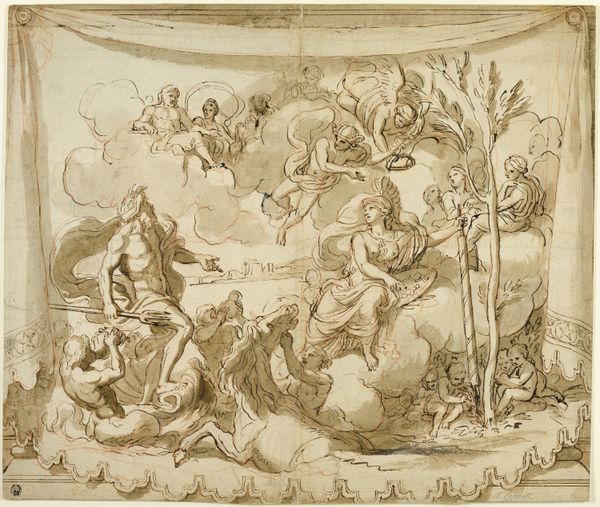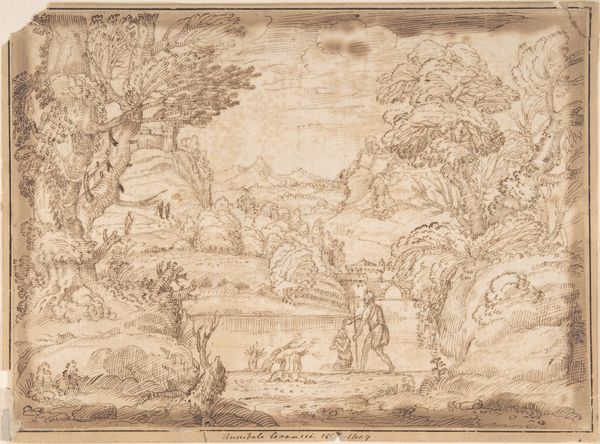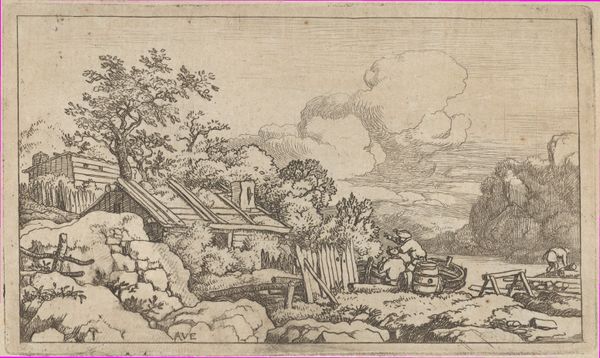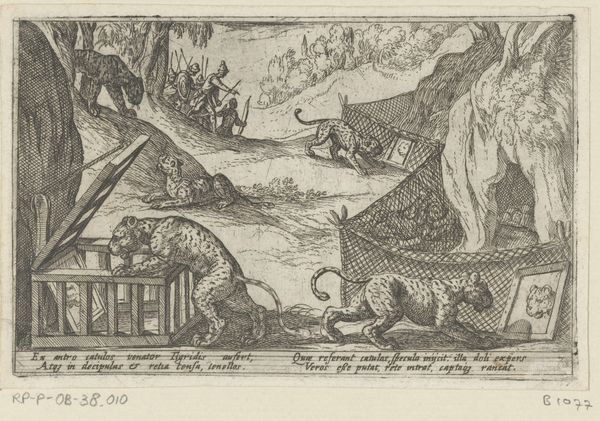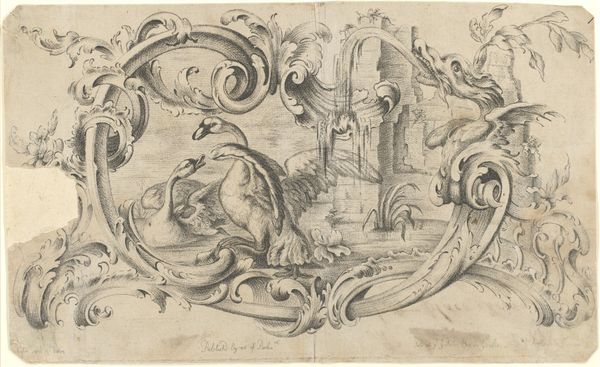
drawing, print, paper, fresco, ink, pencil
#
drawing
#
baroque
#
ink painting
# print
#
pencil sketch
#
charcoal drawing
#
paper
#
fresco
#
ink
#
pencil
#
history-painting
#
nude
Dimensions: 9-3/16 x 13-7/8 in. (23.4 x 35.2 cm)
Copyright: Public Domain
Editor: This is "Design for a Corner of a Ceiling," likely created between 1600 and 1700 by an anonymous artist. It's ink and pencil on paper. There's a playful, almost dreamlike quality to it, with all the cherubs and mythological figures. How do you interpret this work? Curator: It's tempting to get lost in the aesthetic appeal, isn’t it? But consider the baroque period’s obsession with grandeur and the manipulation of space. This wasn’t just decoration; it was a statement of power, wasn't it? Think about the patrons who commissioned such designs. What did this idealized imagery communicate about their status and worldview? Editor: So, it’s more than just pretty pictures? It's about power? Curator: Absolutely. Look at the figures—these are often classical allusions. They speak to a learnedness and refinement. Who gets to be immortalized through art? What stories do these idealized bodies perpetuate, and perhaps more importantly, whose stories are omitted? This isn’t a neutral representation of beauty; it’s a carefully constructed narrative embedded with cultural and political implications. Consider who has historically had the privilege of controlling these narratives. Editor: I hadn't thought about the power dynamic so explicitly. It’s like the design is trying to convey a message, but only to a select audience that would get all the references. Curator: Precisely! And who are they excluding in doing so? Even the seeming lightness of the cherubs carries a weight, a perpetuation of specific ideals. The visual pleasure serves a purpose. Editor: This has really opened my eyes to seeing art beyond the surface. Thanks! Curator: My pleasure. Art always demands we look beneath, behind, and beyond what is initially presented to truly grasp its place in the world, its time, and its effect.
Comments
No comments
Be the first to comment and join the conversation on the ultimate creative platform.
